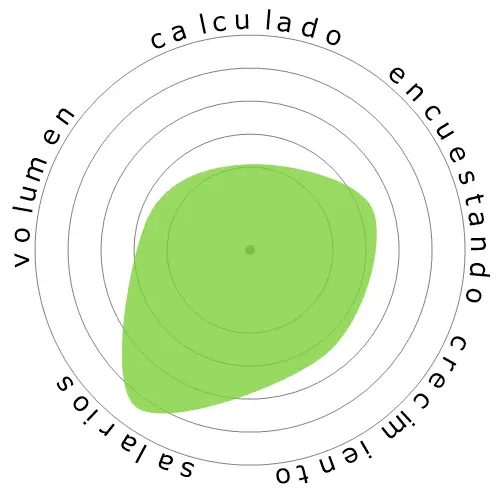Pilotos de Aerolíneas, Copilotos y Ingenieros de Vuelo




Las personas también vieron
Riesgo de automatización calculado
Alto Riesgo (61-80%): Los trabajos en esta categoría enfrentan una amenaza significativa por la automatización, ya que muchas de sus tareas pueden ser fácilmente automatizadas utilizando tecnologías actuales o de un futuro cercano.
Más información sobre qué es esta puntuación y cómo se calcula está disponible aquí.
Encuesta de usuarios
Nuestros visitantes han votado que hay una baja probabilidad de que esta ocupación se automatice. Sin embargo, el nivel de riesgo de automatización que hemos generado sugiere una probabilidad mucho mayor de automatización: 65% probabilidad de automatización.
¿Cuál crees que es el riesgo de la automatización?
¿Cuál es la probabilidad de que Pilotos de Aerolíneas, Copilotos y Ingenieros de Vuelo sea reemplazado por robots o inteligencia artificial en los próximos 20 años?
Sentimiento
El siguiente gráfico se incluye siempre que haya una cantidad sustancial de votos para generar datos significativos. Estas representaciones visuales muestran los resultados de las encuestas de usuarios a lo largo del tiempo, proporcionando una indicación importante de las tendencias de sentimiento.
Sentimiento a lo largo del tiempo (anualmente)
Crecimiento
Se espera que el número de ofertas de trabajo para 'Airline Pilots, Copilots, and Flight Engineers' aumente 5,0% para 2033
Empleo total y estimaciones de vacantes laborales
Las proyecciones actualizadas se deben 09-2025.
Salarios
En 2023, el salario anual mediano para 'Airline Pilots, Copilots, and Flight Engineers' fue de 219.140 $, o 105 $ por hora.
'Airline Pilots, Copilots, and Flight Engineers' recibieron un salario 356,0% más alto que el salario medio nacional, que se situó en 48.060 $
Salarios a lo largo del tiempo
Volumen
A partir de 2023, había 93.670 personas empleadas como 'Airline Pilots, Copilots, and Flight Engineers' dentro de los Estados Unidos.
Esto representa alrededor del 0,06% de la fuerza laboral empleada en todo el país.
Dicho de otra manera, alrededor de 1 de cada 1 mil personas están empleadas como 'Airline Pilots, Copilots, and Flight Engineers'.
Descripción del trabajo
Pilotea y navega el vuelo de aeronaves de ala fija, generalmente en rutas de transportistas aéreos programadas, para el transporte de pasajeros y carga. Requiere certificado de Transporte Aéreo Federal y calificación para el tipo específico de aeronave utilizada. Incluye pilotos de aerolíneas regionales, nacionales e internacionales e instructores de vuelo de pilotos de aerolíneas.
SOC Code: 53-2011.00


Comentarios
Leave a comment
Capacity to AI takeover already exist but passanger trust will take longer to be achieved.
20 years it will start with cargo flights.
Another 10 years after maybe commercial flights.
If an accident happens like where two planes go down due to MCAS designed by boeing. This probably set it back years for automation.
Look at Sully landing on the Hudson can a computer do that?
Miracle on the Hudson that was down to skill and knowledge and a brilliant Captain and First Office.
That is for the pilot. For the co-pilot, it is highly likely because the A.I. doesn't need to do all the instructions; they just do half of it, and the rest the pilot will handle.
For the flight engineer, I think it has a lower chance of getting replaced by A.I. or some sort of computer.
But this is overall just my opinion.
Deja una respuesta sobre esta ocupación